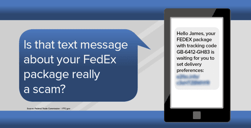Scam Protection
How to avoid SMS scams in your country.
Combating scam messages
There has been an unfortunate rise in spam and phishing attempts across the globe. Scammers send fake text messages to trick recipients into giving them personal information — things like password or account number that can be used to gain access to email, bank, or other accounts.
Modica is committed to the responsible delivery of messaging services that are code compliant, truthful, lawful and socially responsible. We work to ensure that all of our services are fully conversant with the laws, industry best practice and regulatory obligations, and the rights of the end mobile consumer are protected.
Learn how Modica is committed to combating scam SMS globally. Select your country below for tips on avoiding scams. If your country is not listed, search Google for an authorised source of information (e.g. Government regulator). The International Telecommunication Union site has a lot of useful information and links to help here.
More information is available on our Compliance & Reporting Spam page.
To report a text message
You can report any unwanted messages, spam, scam, phishing or suspicious messages to our team by emailing support@modicagroup.com with a screenshot of the text message you have received and your mobile number.
Avoid scams in your country
Scams target everyone. Scammers use stealth, surprise and clever tactics to get what they want, which may be your money or your personal details. No-one is too smart to be scammed.
But, there are things you can do to help spot—and stop—a phone scam.
If you think you’ve been scammed, tell your bank and phone company immediately.
We commend the Australian Communications and Media Authority (ACMA) on the important role they play in combating SMS and identity theft phone scams. For information on how to spot and stop phone scams, visit https://www.acma.gov.au/phone-scams. If you think you’ve been scammed, contact your bank and phone company immediately and report it to Scamwatch. Click here for a useful video. Contact IDCARE if you’ve had personal details stolen.
Here is the industry code that service provides such as Modica are required to adhere to - https://www.commsalliance.com.au/__data/assets/pdf_file/0015/72150/C661_2022.pdf
Customers should mitigate the risk of a phone scam, by taking these steps:
- protecting their personal information and not sharing it with unknown or unsolicited callers- contacting their financial institution immediately if they believe they have lost money to a scammer
- changing default PINs and passwords on newly acquired customer equipment
- selecting strong PINs and passwords (e.g. Not “1234” or “0000” or “password” etc.)
- locking devices with secure PINs
- ensuring that voicemail PINs are secure
- disabling PABX ports and features that are not used (e.g. remote call-forwarding)
- changing PINs and passwords regularly
- not responding to missed calls or SMs from unknown international Numbers, unknown Australian Numbers or an unknown source
- not clicking on URLs or making return calls to telephone Numbers contained in the SM from unknown international Numbers or unknown Australian Numbers or an unknown source
- Blocking suspicious or unknown Australian Numbers or international Numbers on devices and use of Blocking services or products, where available, on landlines
- allowing unknown calls to go to voicemail and then listening to any message left to ascertain if this might be a genuine call
NOTE: Scamwatch, Stay Smart Online and the ACMA all provide awareness raising material about scams, as do other government departments like the Australian Taxation Office and Services Australia. The ACCC’s Little black book of scams is one particularly noteworthy and comprehensive example of scam awareness raising.
Telecommunications Carriers Act: https://www.legislation.gov.au/Series/C2004A05145
Handling of unwanted or life-threatening messages: https://www.commsalliance.com.au/Documents/all/codes/c525
Mobile Premium Messaging Code: https://www.commsalliance.com.au/Documents/all/codes/c637
Consumer Protection code 2019: https://www.commsalliance.com.au/Documents/all/codes/c628
Consumer Protection code effective August 2019: https://www.commsalliance.com.au/Documents/all/codes/c637
Advertising Standards: https://adstandards.com.au/issues
The Canadian Anti-Fraud Centre collects information on fraud and identity theft and provides information on past and current scams affecting Canadians.
Victims of fraud are encouraged to report it
A list of recent scams is maintained at https://www.antifraudcentre-centreantifraude.ca/scams-fraudes/medium-moyen-eng.htm#a1

In New Zealand, the Ministry of Business, Innovation & Employment's Consumer Protection division and the Department of Internal Affairs play an important role in educating consumers about phone scams.
Visit https://www.consumerprotection.govt.nz/general-help/scamwatch/avoiding-scams/ for tips on how to avoid scams, and how to take action if you have been a victim of a scam.
The Department of Internal Affairs has useful information on how to report scams
We encourage all clients to familiarise themselves with the following resources to ensure their service is compliant with New Zealand laws and industry best practice.
The Advertising Codes of Practice is regulated by the Advertising Standard Authority and is available at www.asa.co.nz
The Unsolicited Electronic Messages Act (UEMA), monitored by The Department of Internal Affairs, is available here http://www.legislation.govt.nz/act/public/2007/0007/latest/whole.html?search=sw_096be8ed818097fd_unsubscribe_25_se&p=1#DLM405134)
Government Anti-Spam information sheets here: https://www.dia.govt.nz/DIAwebsite.nsf/%20wpg_URL/Services-Anti-Spam-Index
The Gambling Act 2003 is available here: www.legislation.govt.nz/act/public/2003/0051/latest/DLM207497.html
The Telecommunications Carriers Forum - Mobile Messaging Code is available here: https://www.tcf.org.nz/industry/standards-compliance/mobile-phone-services/messaging-services/
How to report Text Spam in New Zealand?
If you have received a text message from an unknown sender, business or organisation and suspect the message may be harmful, report this to the New Zealand Department of Internal Affairs (DIA). They offer a free and easy to use service for reporting text-spam.
Step #1: Take a snapshot of the message and the number that the message appeared from
Step #2: Forward the message you have received to the FreeTXT number 7726 (SPAM)
Step #3: Follow the steps in the response message you receive from the number 7726 which may ask you to provide more information here (http://7726.govt.nz)
More information can be found here: https://www.dia.govt.nz/Spam-Complain-About-TXT-Spam
The United Kingdom Government offers a range of information and support to prevent phone scams.
The most prevalent scam targets people's concerns around electricity bills. The government has already issued warnings, but the scams continue to spread.
Recipients of suspicious messages can forward the text message to 7726. Victims of fraud can report the issue online via Action Fraud https://reporting.actionfraud.police.uk/login or call 0300 123 20240.
For more information, visit this site.
The Federal Trade Commission (Consumer Advice) of the United States has useful information on how to recognise and report spam text messages. Visit https://consumer.ftc.gov/articles/how-recognize-and-report-spam-text-messages for more information.
